The Koventareios Municipal Library of Kozani is one of the largest and best organized historical libraries in Greece. It is famous for the large number of its early printed material, including five incunables. So, it is not surprising that the first stop in our journey of searching for and recording incunabula in Greece was Kozani and the Koventareios.
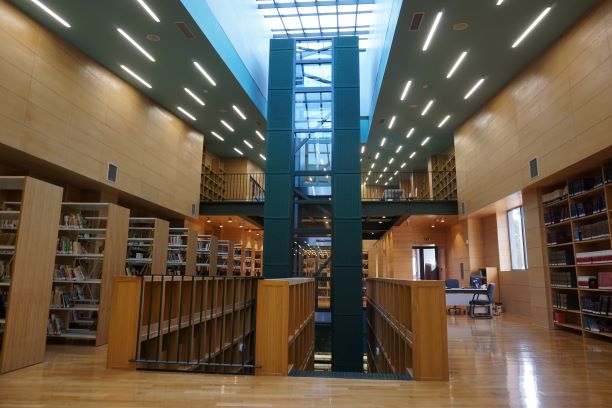
The Library has been in existence, in various forms and with various names, since the 17th century, and has never ceased its operation. Thus, it holds a large number of manuscripts and early printed books, important archival materials on the history of Kozani and its area, archeological collections, a collection of maps (including the famous twelve-page Map of Rigas Velestinlis), as well as the Psarianos Library. This wealth of material has been collected throughout its history mainly by donations from citizens of Kozani and the wider area and it has survived to this day with great collective effort.
One of its many contributors, who deserves a special mention, is Nikolaos Delialis, its first “curator and librarian / keeper” since 1923, when the library passed to the jurisdiction of the municipal administration. The name Koventareios comes from the Greek-American brothers Constantine and Demetrios Koventarou, who in 1963 sponsored the expansion of the City Hall for the relocation of the Library.
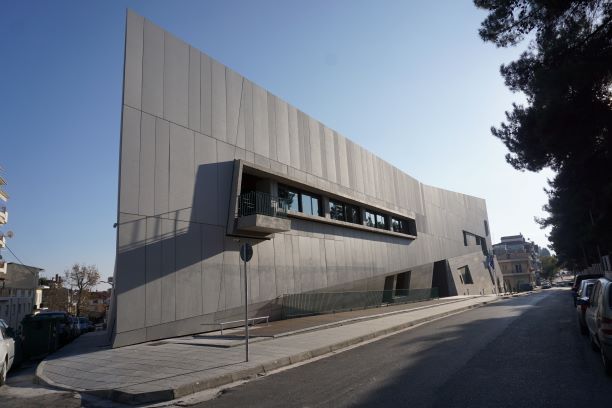
Since 2017 the Library is housed in a modern building complex of 7,000 sq.m. in downtown Kozani. In addition to the very interesting old materials, it also has a rich modern collection of books that serves the needs of the city’s public. A point of reference for the intellectual and social life of the city, and with a dynamic online presence, the Library hosts daily visitors of all ages and interests, as we had the opportunity to find out during our visit.
The incunabula of the Koventareios
The staff of the library, headed by the Director, Ioanna Stergiopoulou, and the Deputy Head of Archives, Museums and Galleries, Eleni Margariti, welcomed us very warmly. We also had the opportunity to take a tour of the special collections, and the staff facilitated our research in every possible way. We would like to thank them all very much again!
The Koventareios holds one of the largest Greek collections of incunabula outside Athens: a total of six volumes from five different editions. Each of these books has its individual features, signs-testimonies of its former owners and its history. Having passed through several hands, they carry a lot of varied provenance information. Also, precisely because they have been in the library for centuries, they have preserved several old bookbindings and of course bear the stamps and ownership labels of various periods of the library.
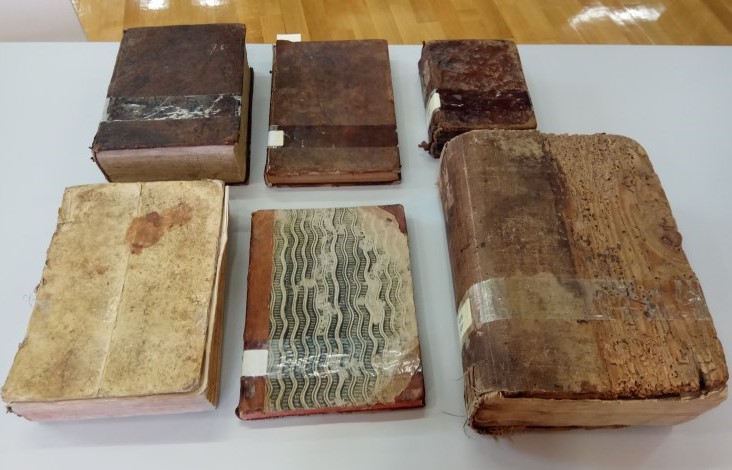
The books, and selectively the most interesting pieces of material evidence we have found, are the following:
- Johannes Matthaeus Ferrarius, de Gradibus, Expositiones super tractatum de urinis et fen XXII tertii Canonis Avicennae. Milan: Jacobus de Sancto Nazario, de Ripa, 1494.
- Aristoteles, Opera, 5 vols. Venice: Aldus Manutius, Romanus, 1495-98.
- Aristophanes, Comediae novem. Venice: Aldus Manutius, Romanus, 1498.
- Suidas, Lexicon graecum, 2 vols. Milan: Johannes Bissolus & Benedictus Mangius, for Demetrius Chalcondylas, 1499.
- Epistolae diversorum philosophorum, oratorum, rhetorum. Venice: Aldus Manutius, Romanus, 1499.
Johannes Matthaeus Ferrarius, de Gradibus, Expositiones super tractatum de urinis et fen XXII tertii Canonis Avicennae. Milan: Jacobus de Sancto Nazario, de Ripa, 1494.
The medical edition Ferrari Expositiones super tractatum de urinis et fen XXII tertii Canonis Avicennae, the sole copy in Greece, printed in Milan in 1494 by Jacobus de Sancto Nazario, de Ripa. The Koventareios has only the first part (De urinis), bound together with another medical work of 1551, in a 18th century leather binding.
The most interesting provenance detail of this copy is the ownership inscription of Georgios Megdanis, a 19th-century physician, son of the most famous, perhaps, “iatrophilosophos” (doctor – philosopher of Kozani), Harisios Megdanis, whose family is linked with one more incunable, as we shall see below.
Aristoteles, Opera, 5 vols. Venice: Aldus Manutius, Romanus, 1495-98.
The famous edition of Aristotle’s Works that was printed in Venice by Aldus Manutius. The Koventareios Library has two of its five volumes, the 3rd (January 1497) and the 4th (June 1497), which, as evidenced by their provenance, reached the library each following a completely different path.
The 3rd volume contains, exclusively in the book De Anima (On the Soul), some of the most interesting and detailed miniatures we have come across. They probably date back to the 16th or early 17th century. Manuscript notes and annotations in dark ink by a later hand are found in other parts of the book.
The book also bears, under the colophon, a manuscript excommunication in iambic meter against anyone who would dare to steal it. Although an attempt has been made to blot it out with ink, it testifies that in the 17th century the book belonged to the Monastery of Halki in Constantinople (mod. Istanbul). Obviously the threat did not do much good! Also, in leaf aaaa1r we read the ownership inscription “Εκ των του Φιλίππου Αδαμαντίδου” (“From [the books] of Philippos Adamantides”). The same hand seems to have completed the title and foliation on the content page. Adamantides served as the Secretary of the Diocese of Kozani from 1849 until his death in 1856. Some of his manuscripts are now kept in the Library.
From the 4th volume, the Library has only the section that includes Aristotle’s Metaphysics. Two named owners have left their mark here as well. The ownership inscription on the first page reads: “Εκ των του ταπεινού επισκόπου Σερβίων και Κοζάνης Θεοφίλου του Βερροιαίου” (“From [the books of] the humble Bishop of Serbia and Kozani Theophilos of Verroia”), while at the bottom of leaf AAAaaa1r we read: “Εκ των του Χαρισίου Δημητρίου του εκ Κοζάνης […]” (“From [the books of] Charisios Dimitriou of Kozani […]”). Charisios Dimitriou is none other than the priest and “iatrophilosophos” Charisios Megdanis (1768-1823), father of Georgios Megdanis (mentioned above), whose manuscript works, some of which, still unpublished, are also preserved in Koventareios.
Aristophanes, Comediae novem. Venice: Aldus Manutius, Romanus, 1498.
The first edition of Aristophanes’ Comedies, edited by Marcus Musurus and printed by Aldus Manutius in Venice in 1498. The copy bears extensive manuscript notes in Greek, from different early hands. A note at the end of the work bears a name (three times) and a date: “Έτος 1689 Αυγούστου 26 […] Εμμανουήλ Σταμούλη” (“Year 1689 August 26 […] [of] Emmanuel Stamoulis”). Of even greater interest are the extensive notes on the fate of the book, as well as other assets (agricultural products) after the death of Stamoulis in 1739, which are found on the front pastedown.
Suidas, Lexicon graecum, 2 vols. Milan: Johannes Bissolus & Benedictus Mangius, for Demetrius Chalcondylas, 1499.
The Lexicon (Dictionary) of Suidas, edited by Dimitrios Chalkokondyles, printed for him in Milan in 1499 by Johannes Bissolus and Benedictus Mangius. The earliest material evidence of this book, its rubrication and binding, date back to the 16th century.
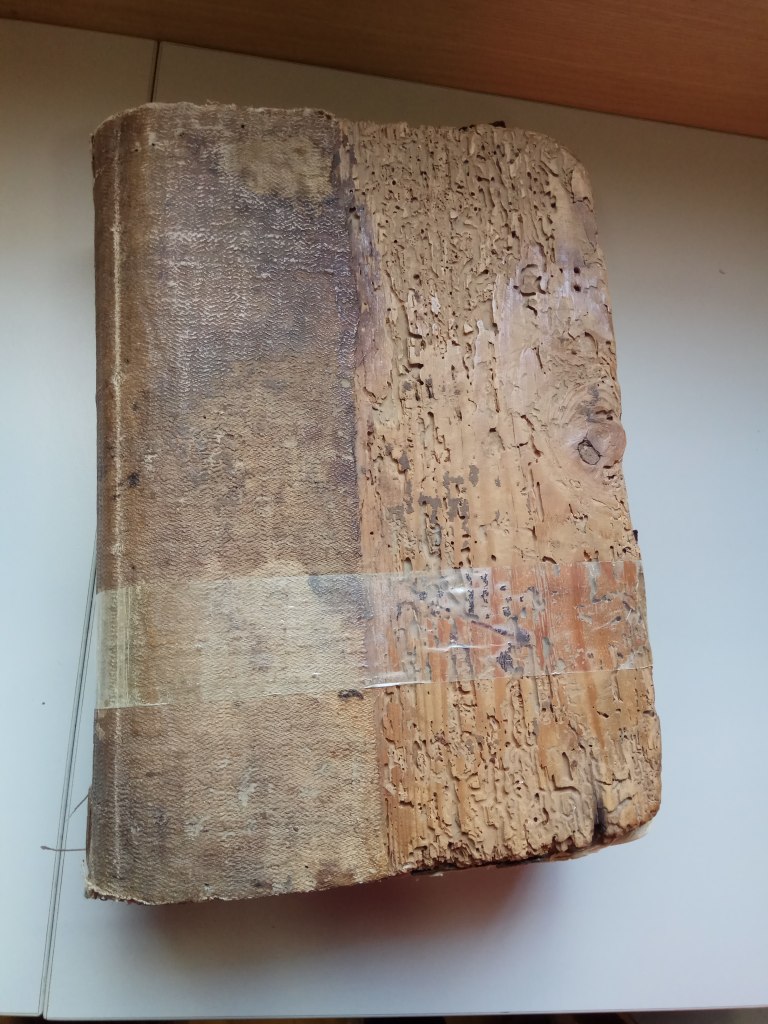
The book also has manuscript notes, mainly additions and translations of words, by at least three hands, dating from the 16th to the middle of the 18th century. In leaf aiiir we read the inscription “Κτήμα του Προδρόμου της σκίτεως Βερροίας [sic]” (“Holding of the Monastery of John the Baptist, Scete of Verroia”). According to Delialis’s catalog (vol. 1, no. 127), the book was donated to the Library by Bishop Theophilos.
Epistolae diversorum philosophorum, oratorum, rhetorum. Venice: Aldus Manutius, Romanus, 1499.
The collection Letters of various philosophers and orators, edited by Marcus Musurus and printed by Aldus Manutius in 1499. In the book we find at least three different hands that left marginalia, some of those quite old. In certain parts they are impressively extensive, using every available blank space around the printed text!


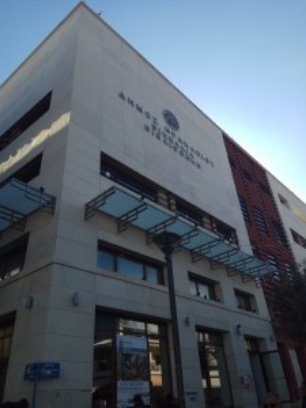
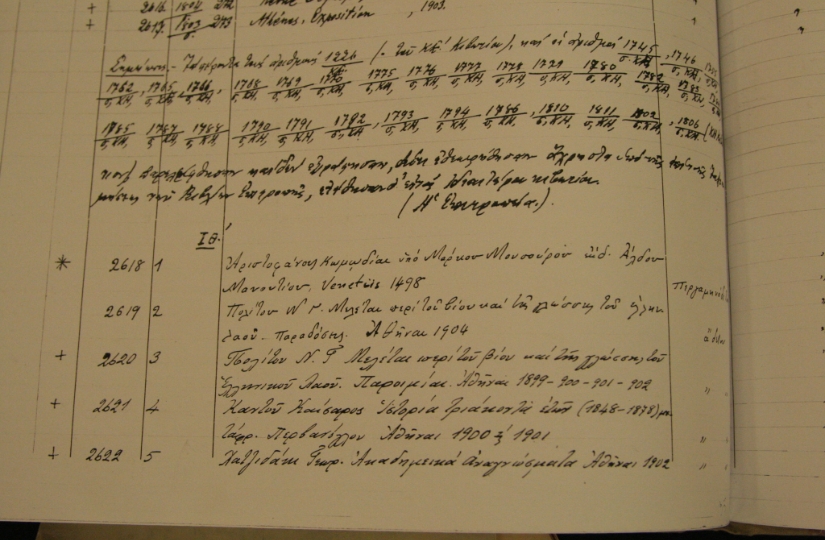
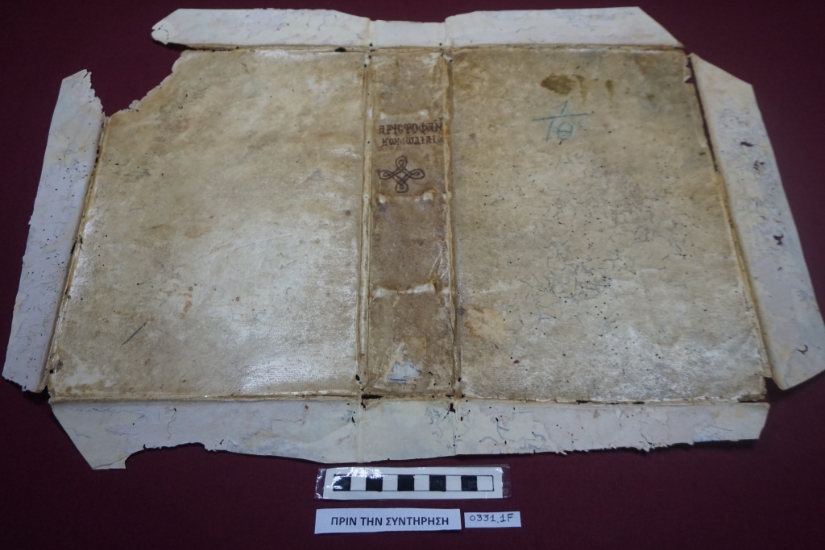
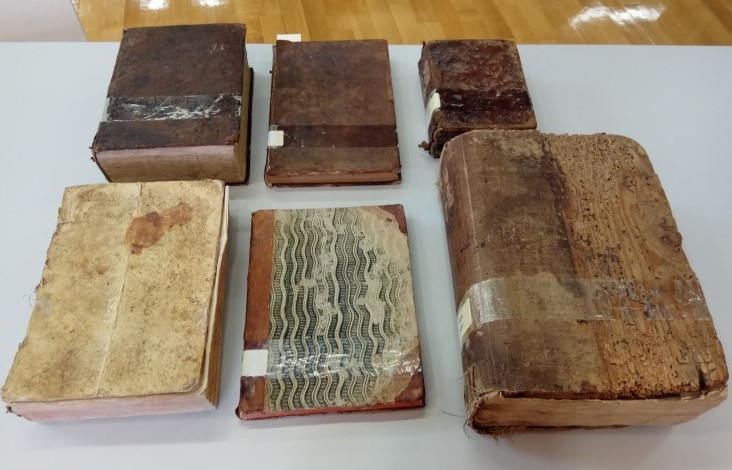
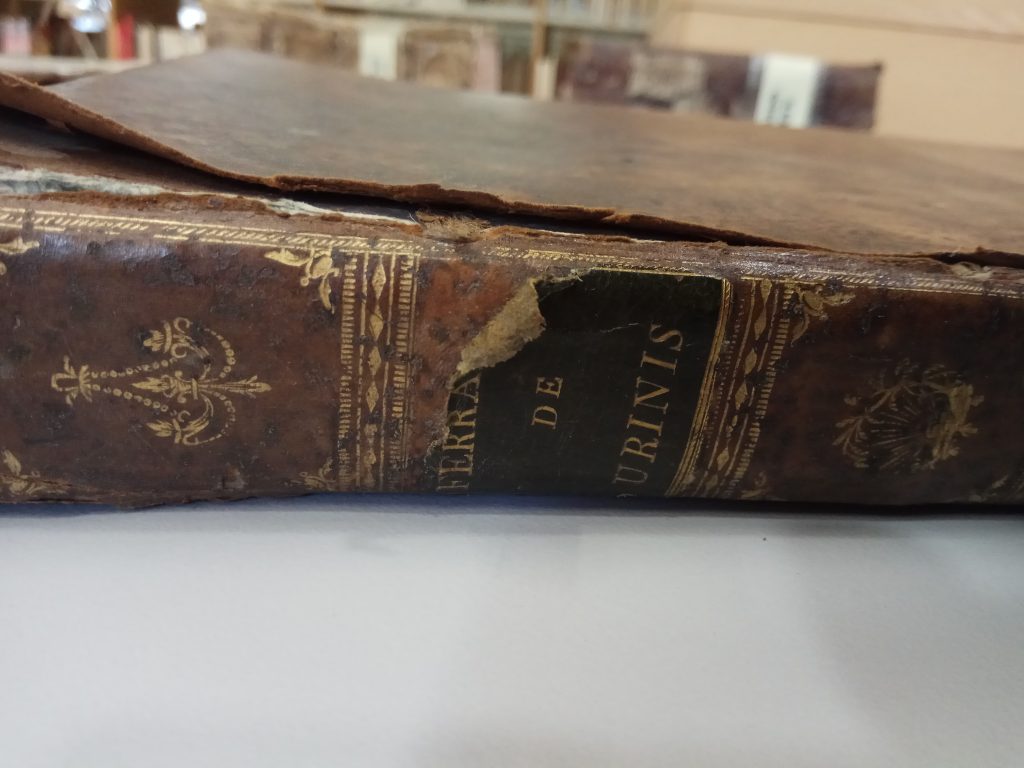
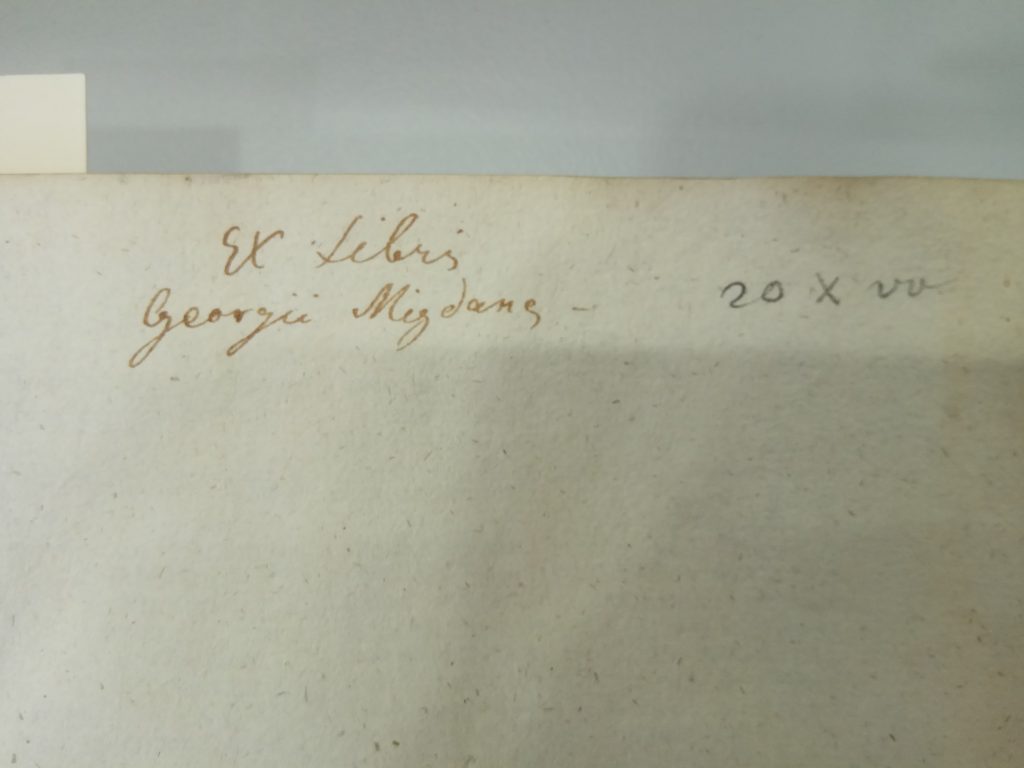
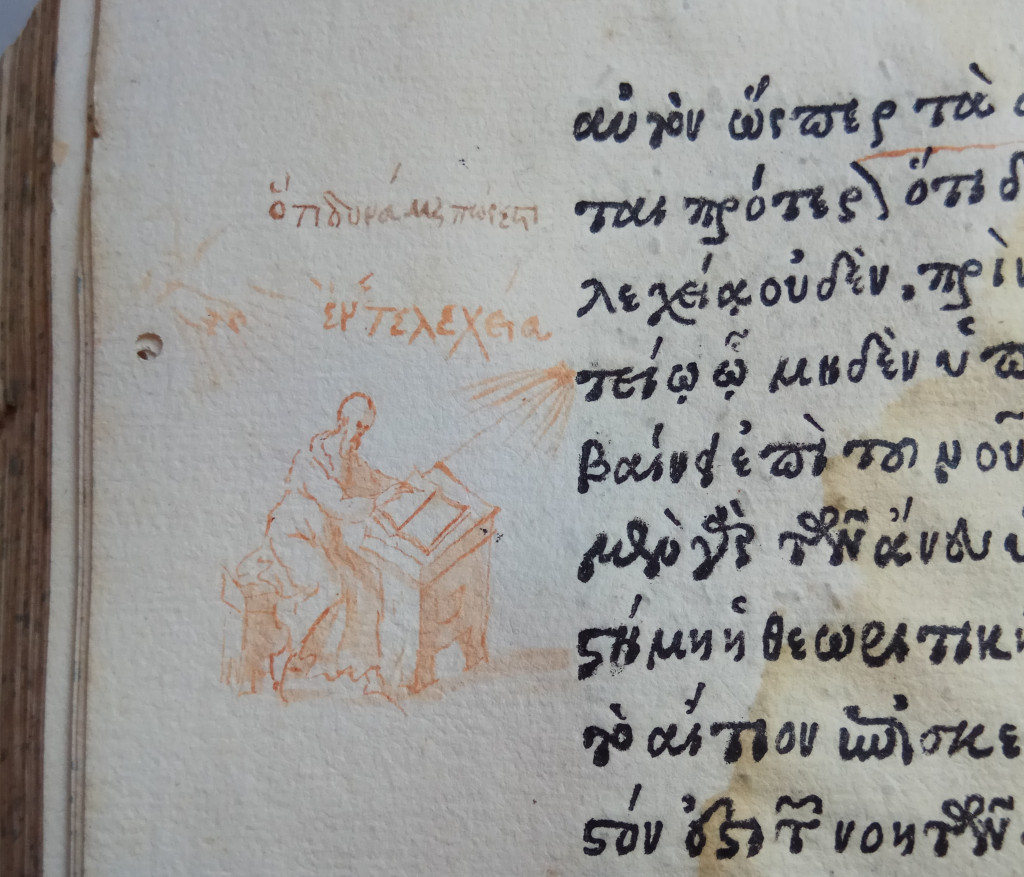
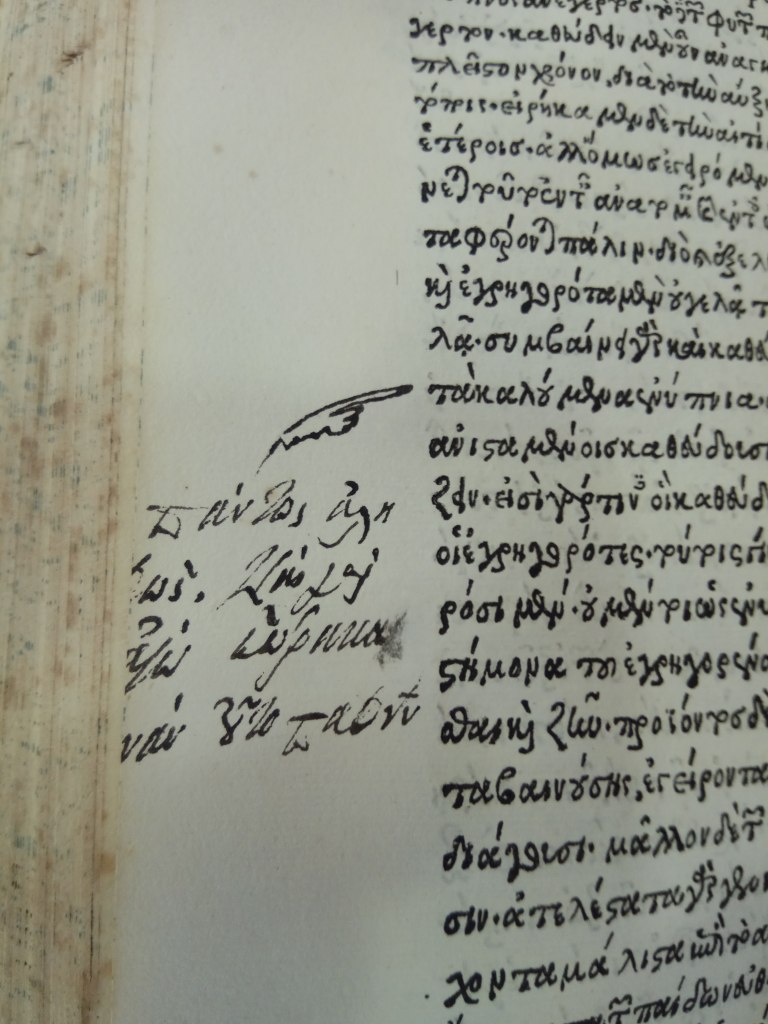
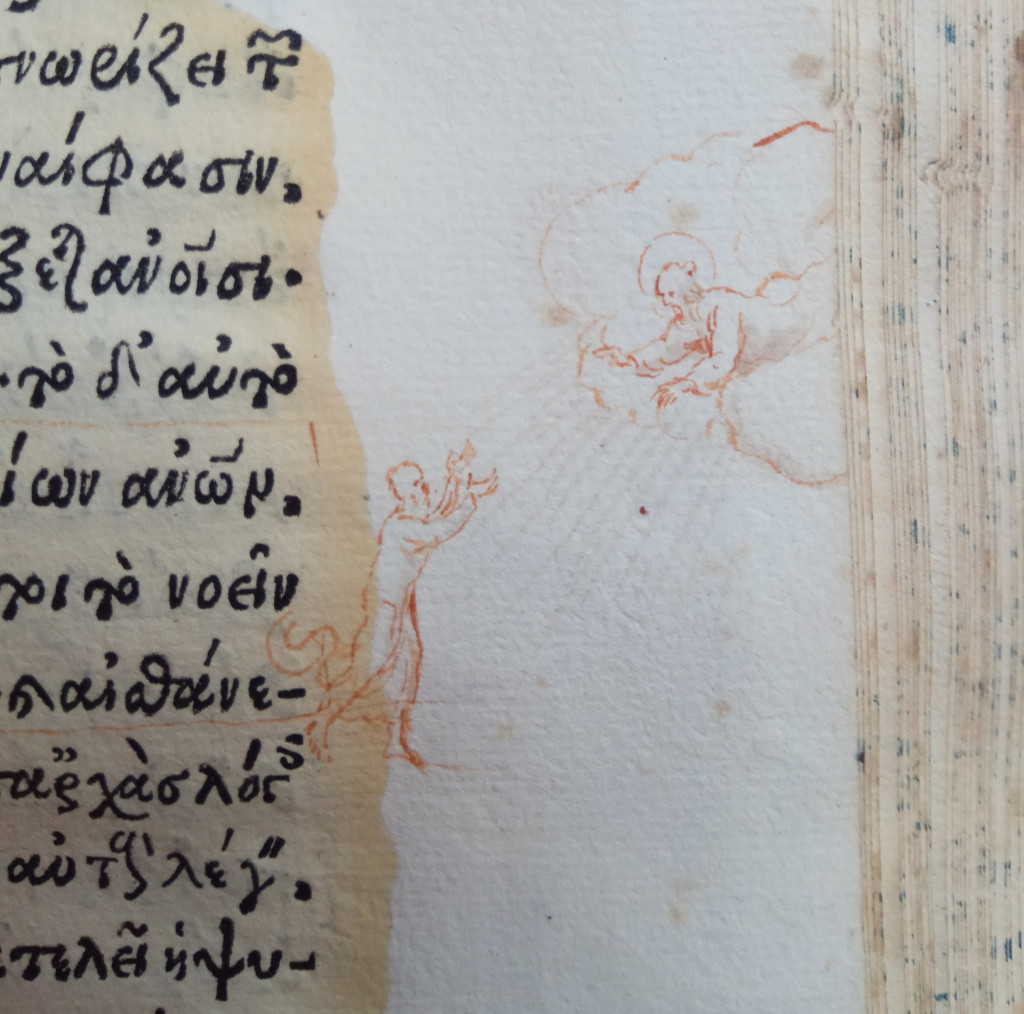
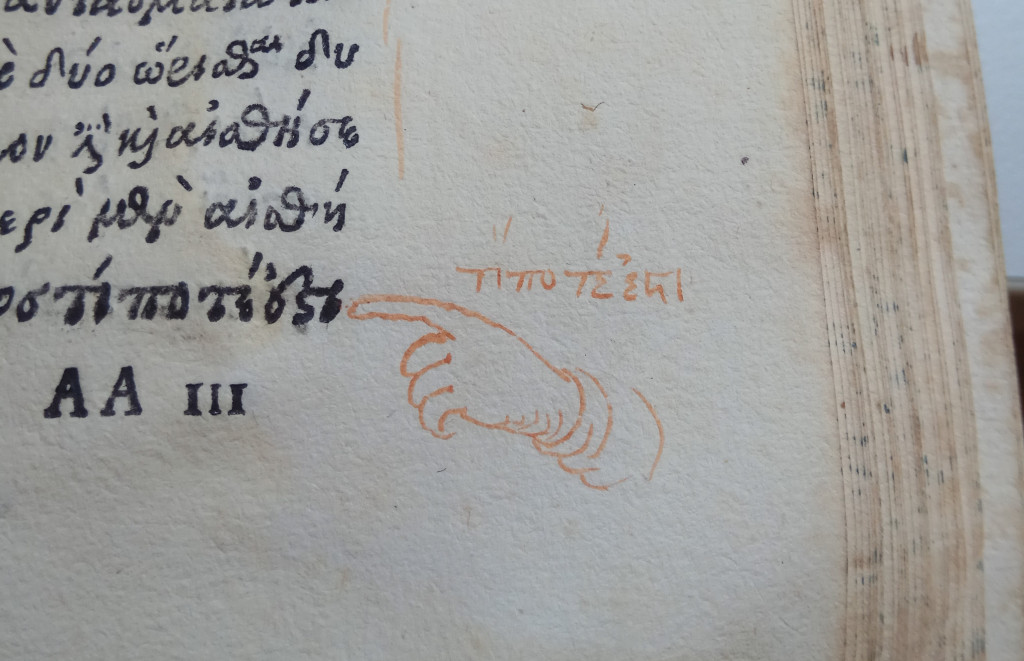
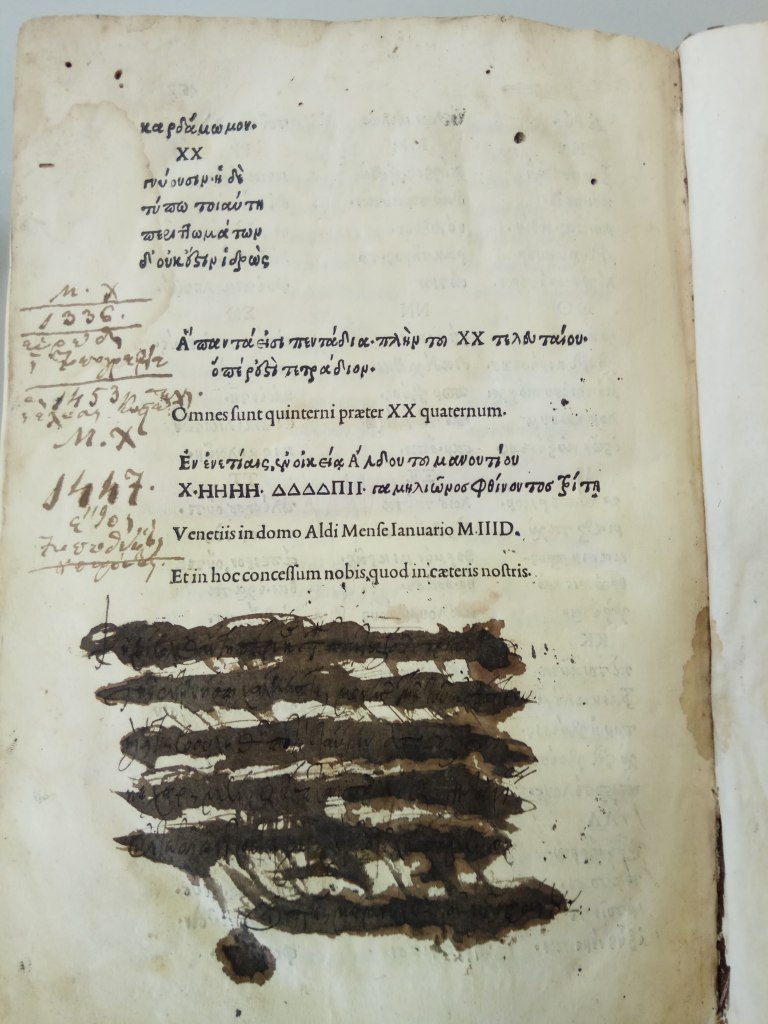
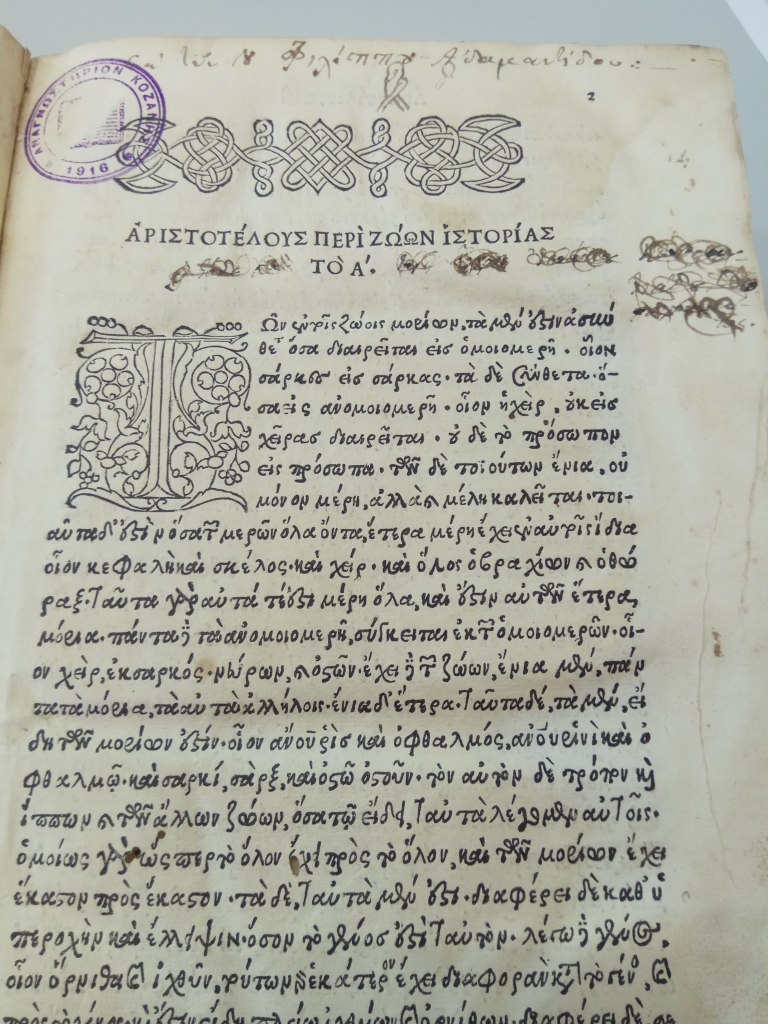
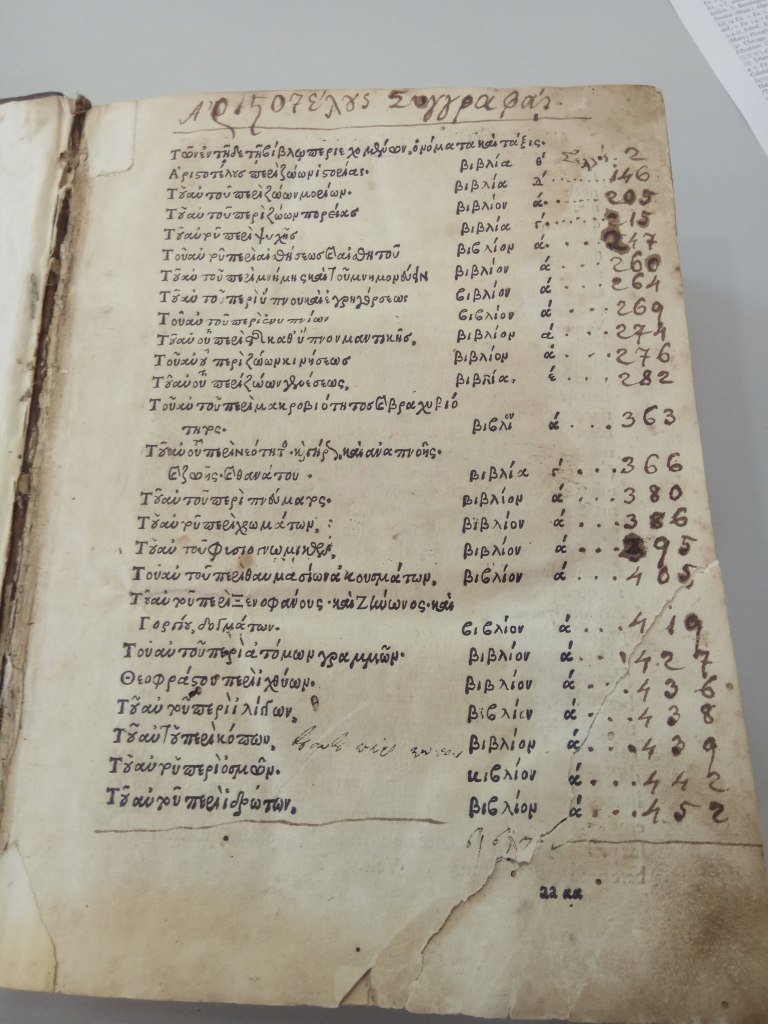
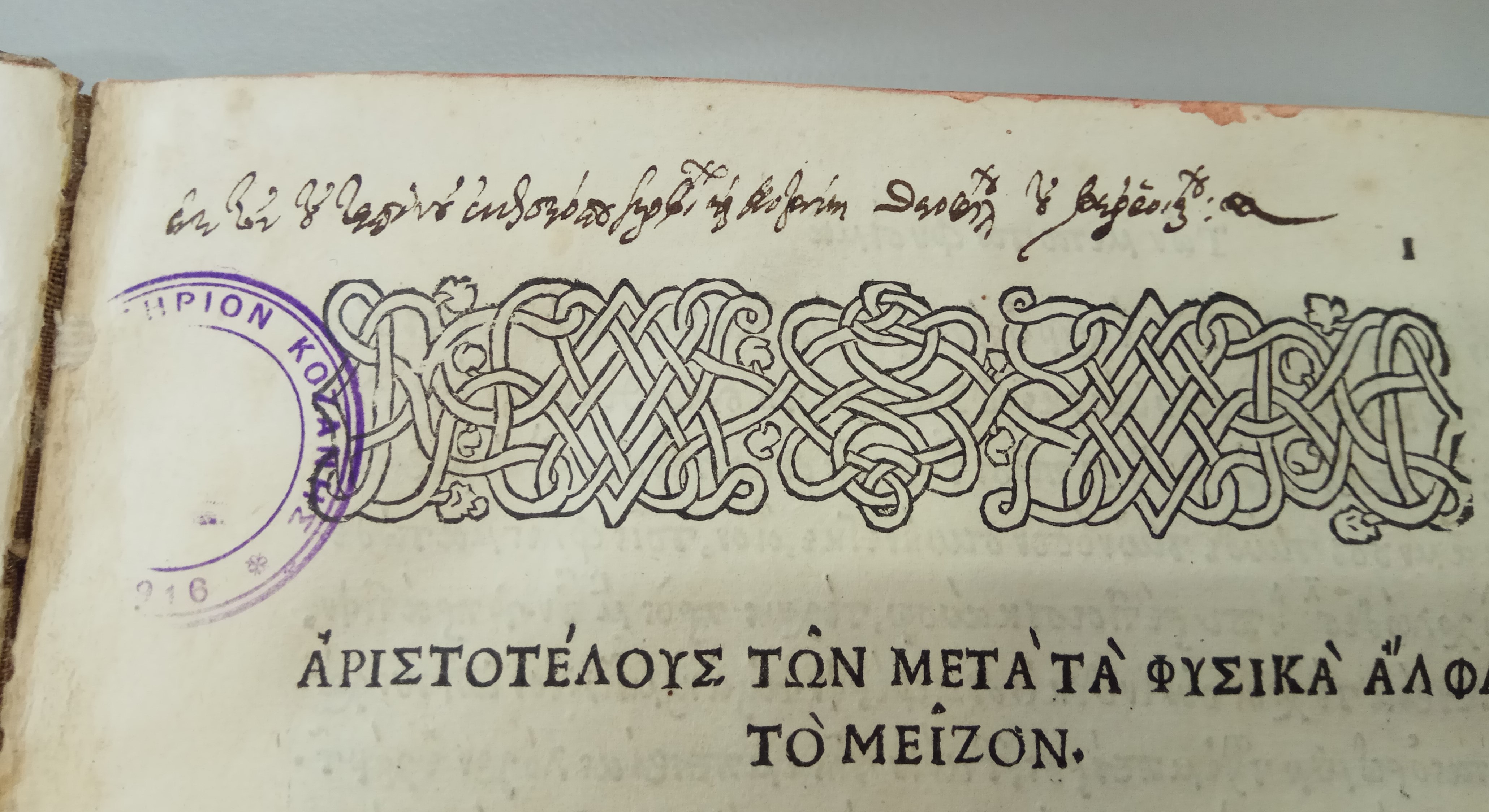
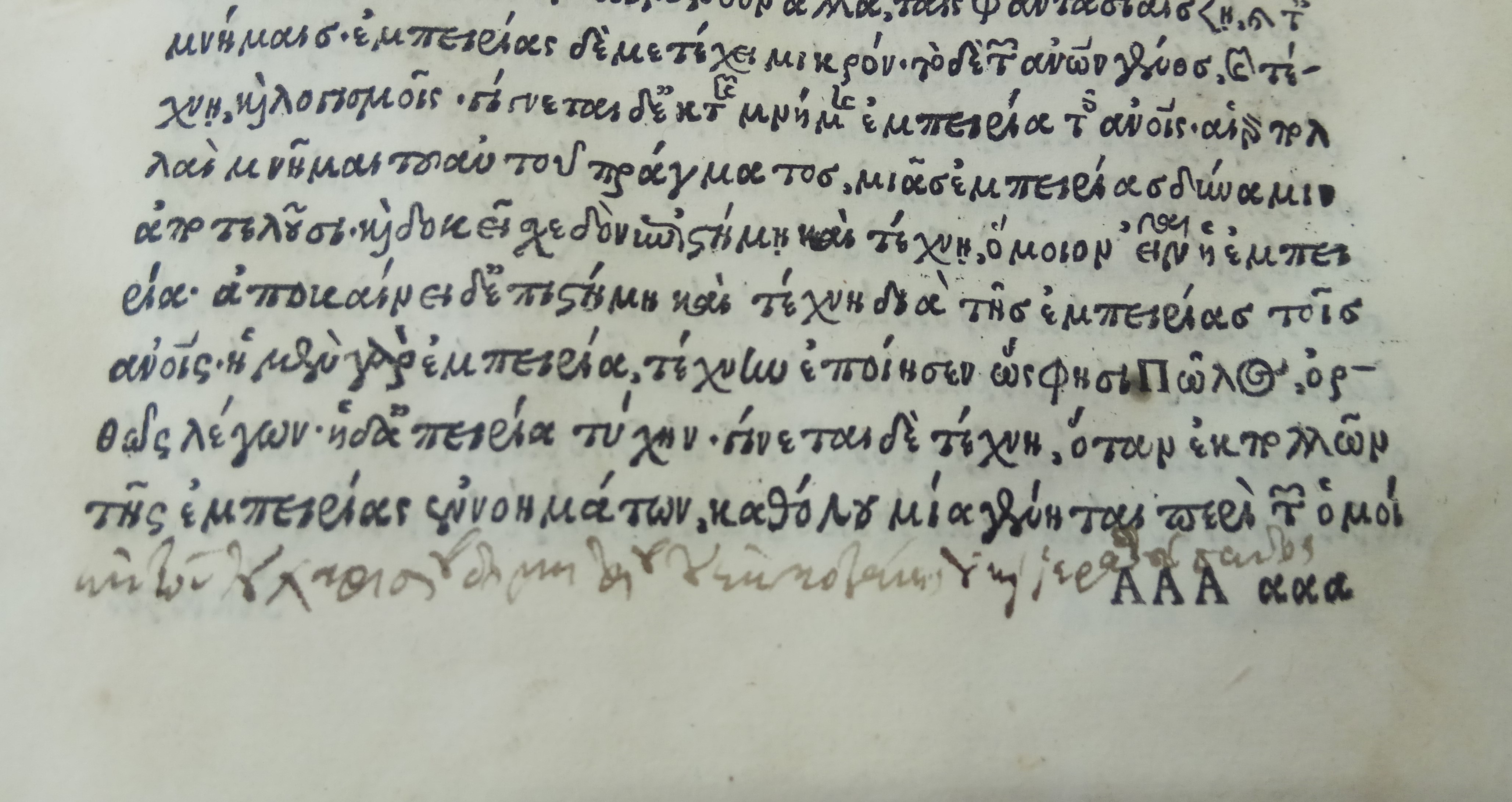
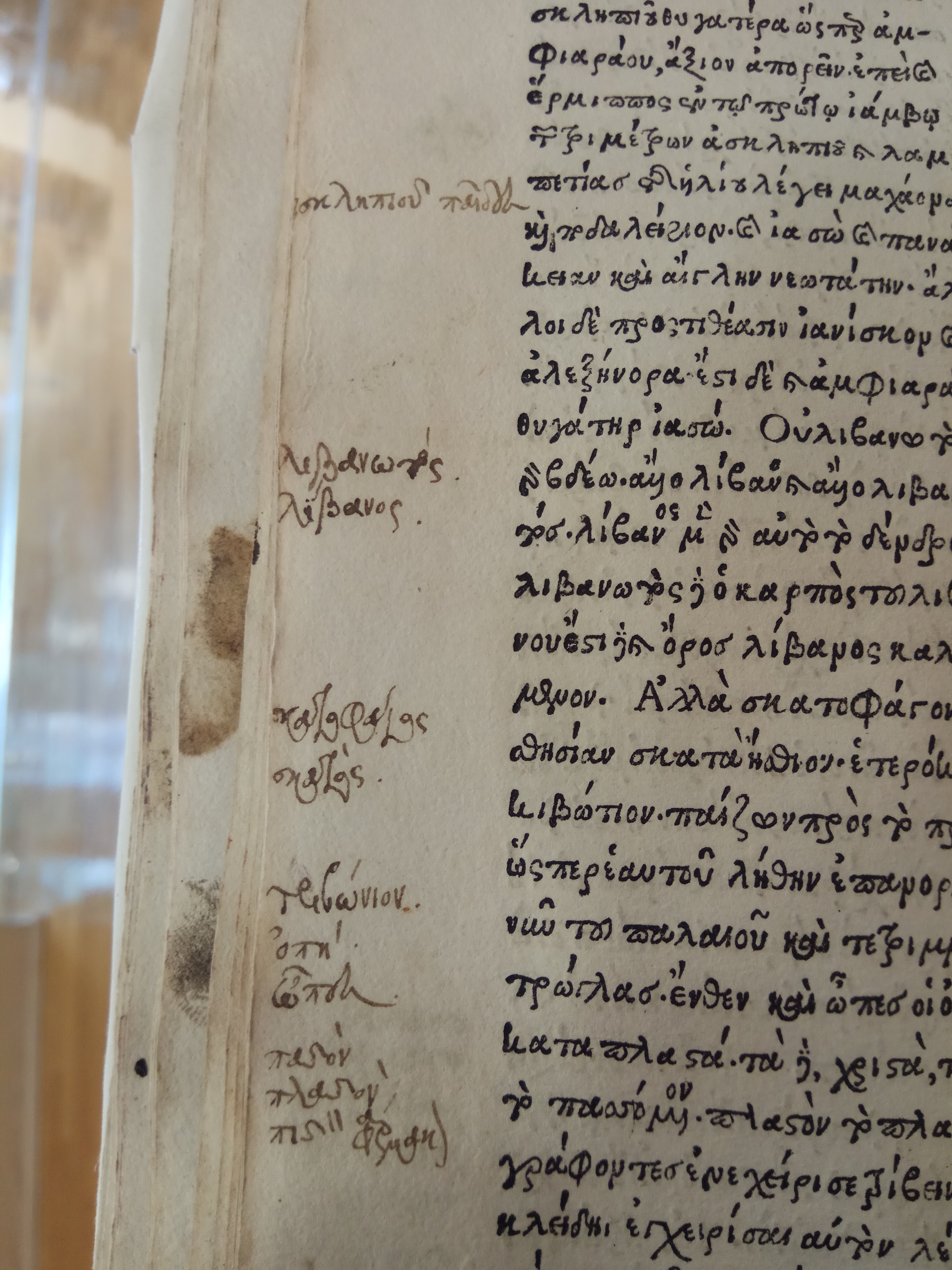
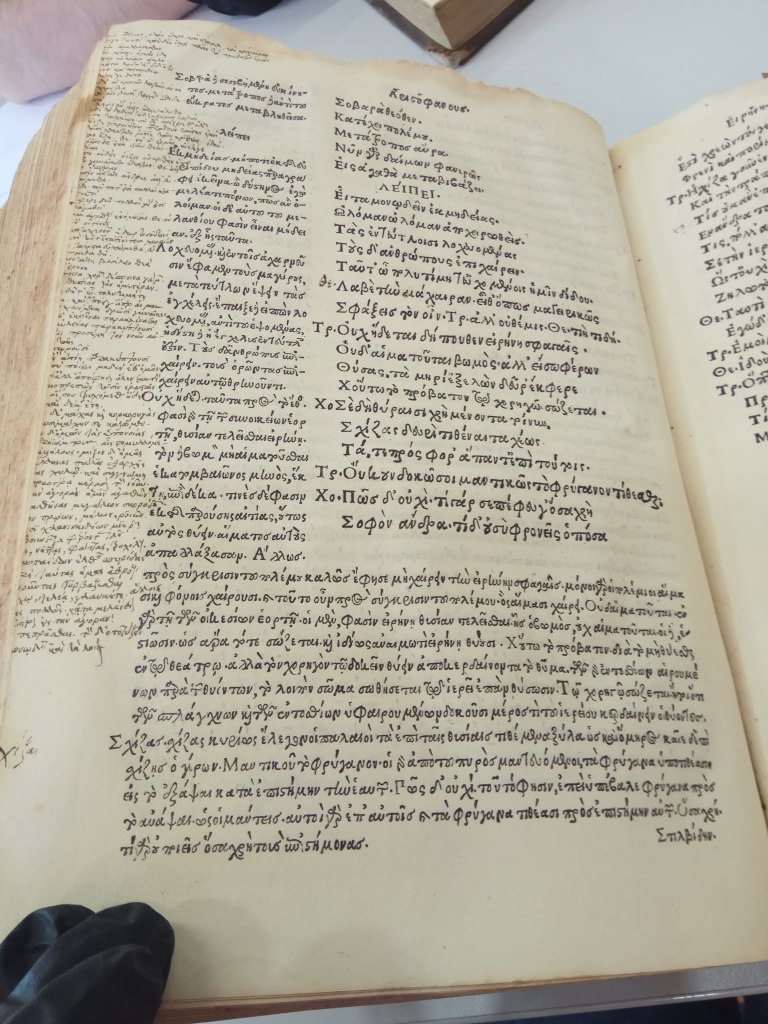
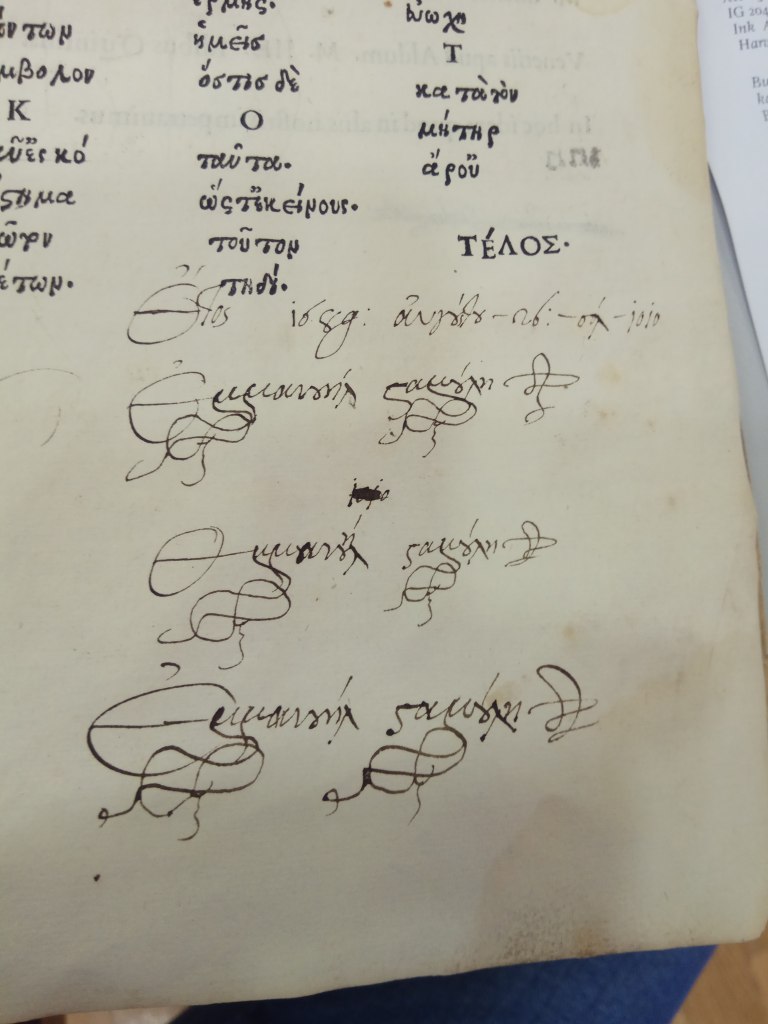
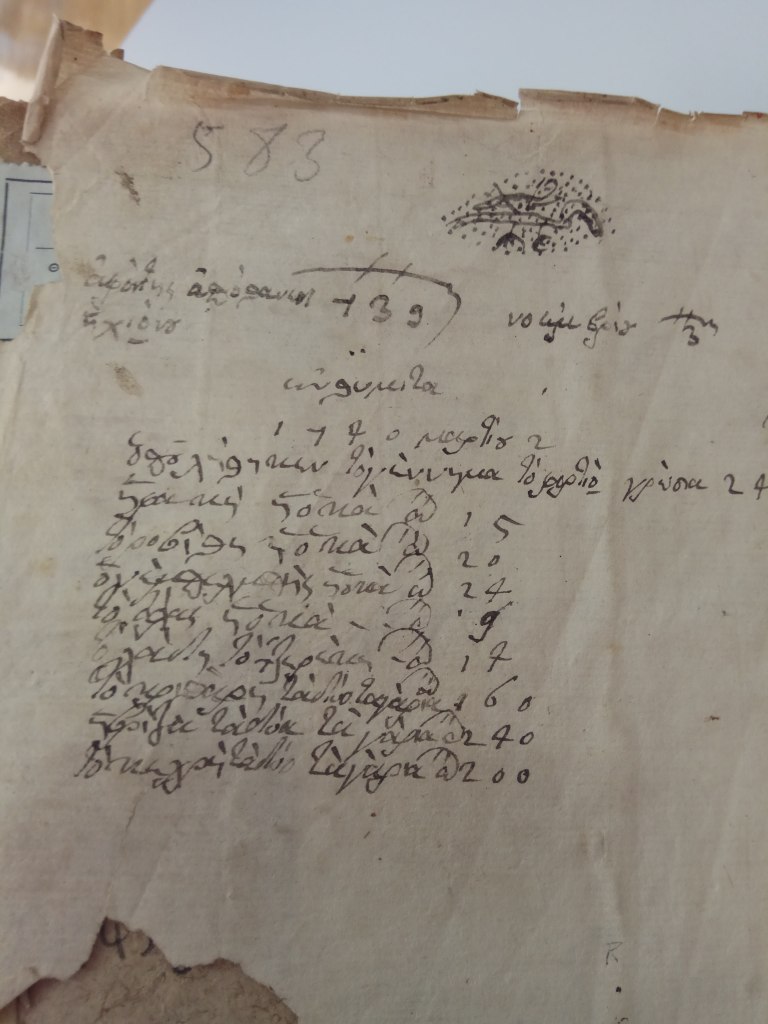
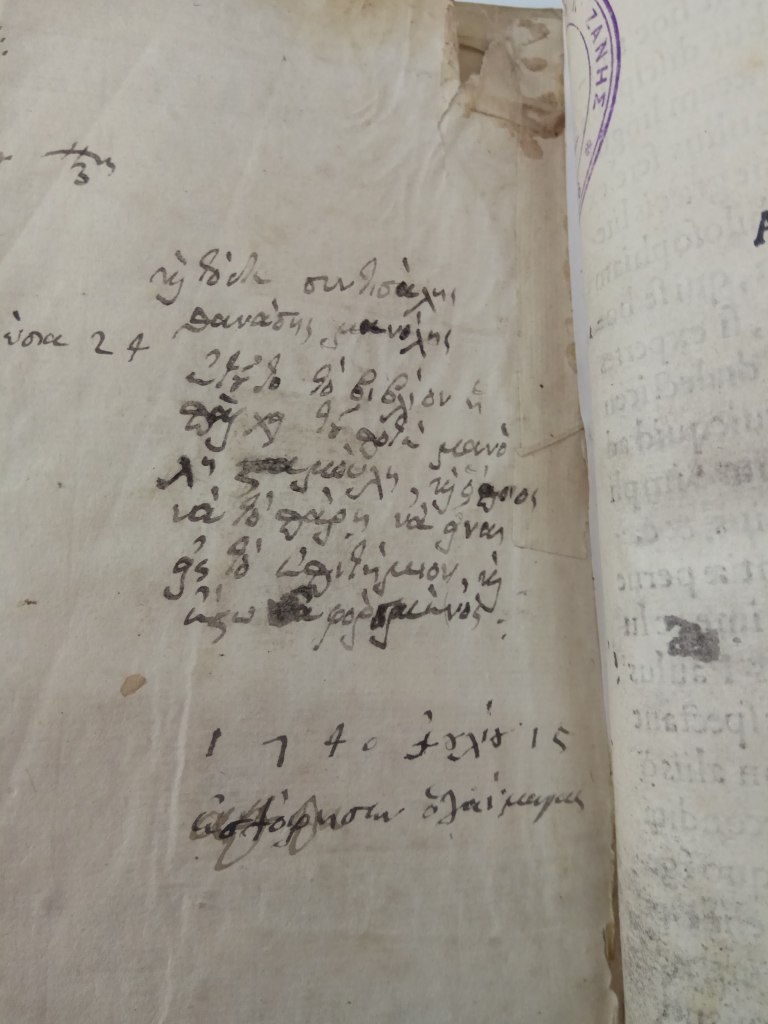
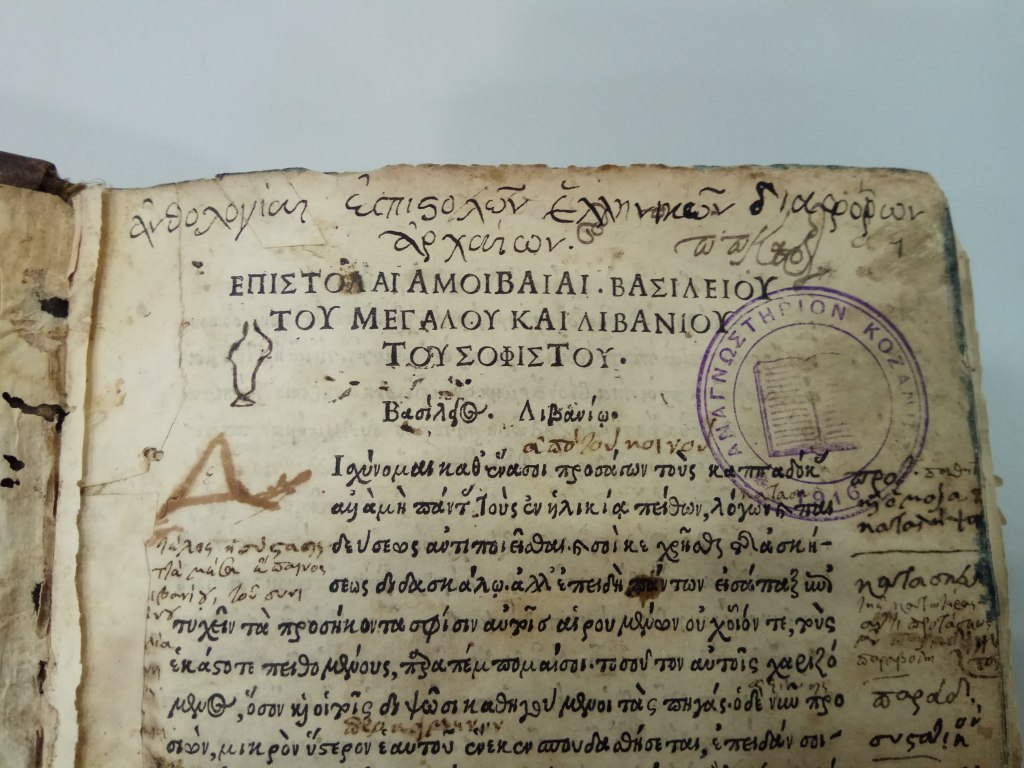
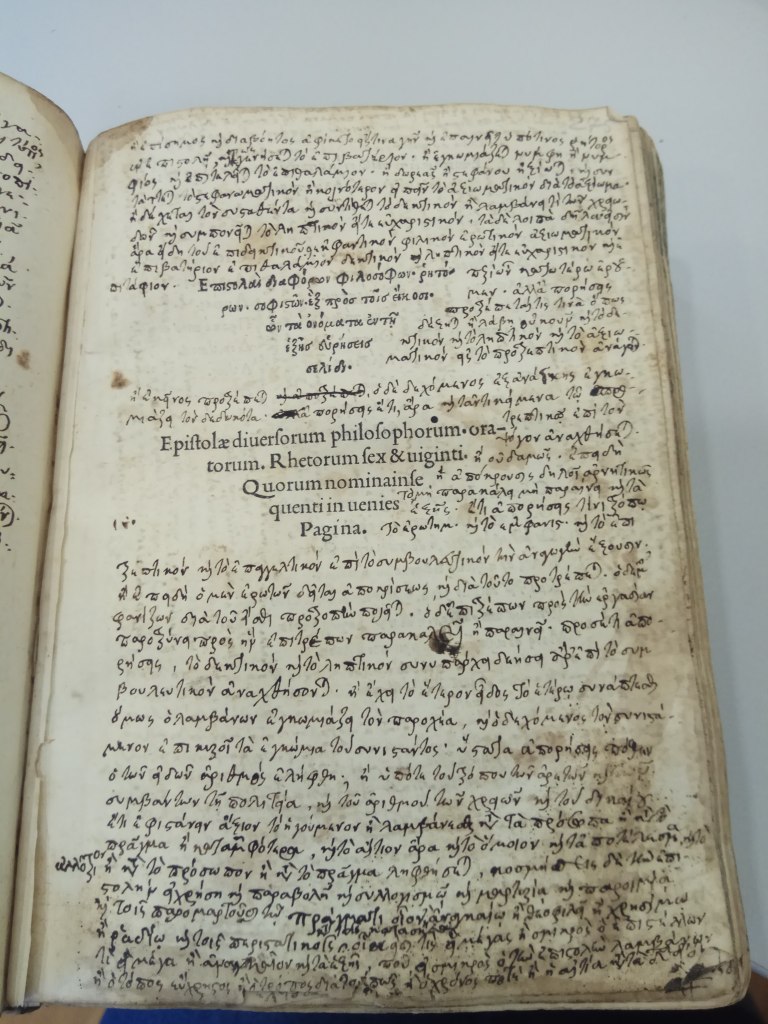
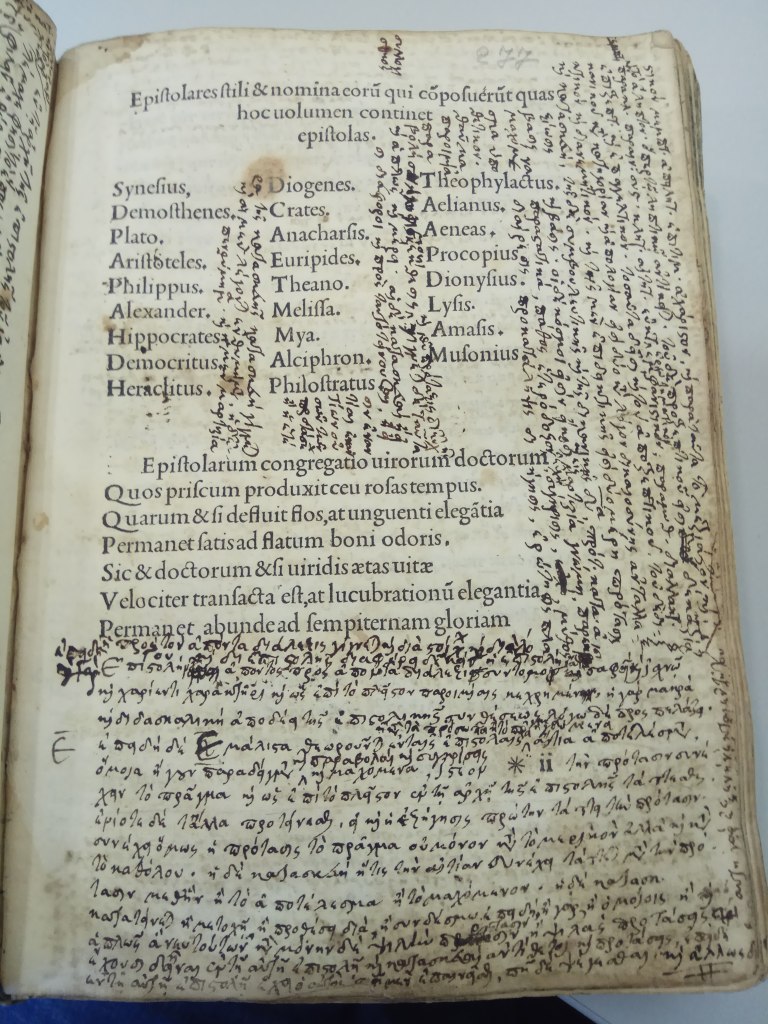
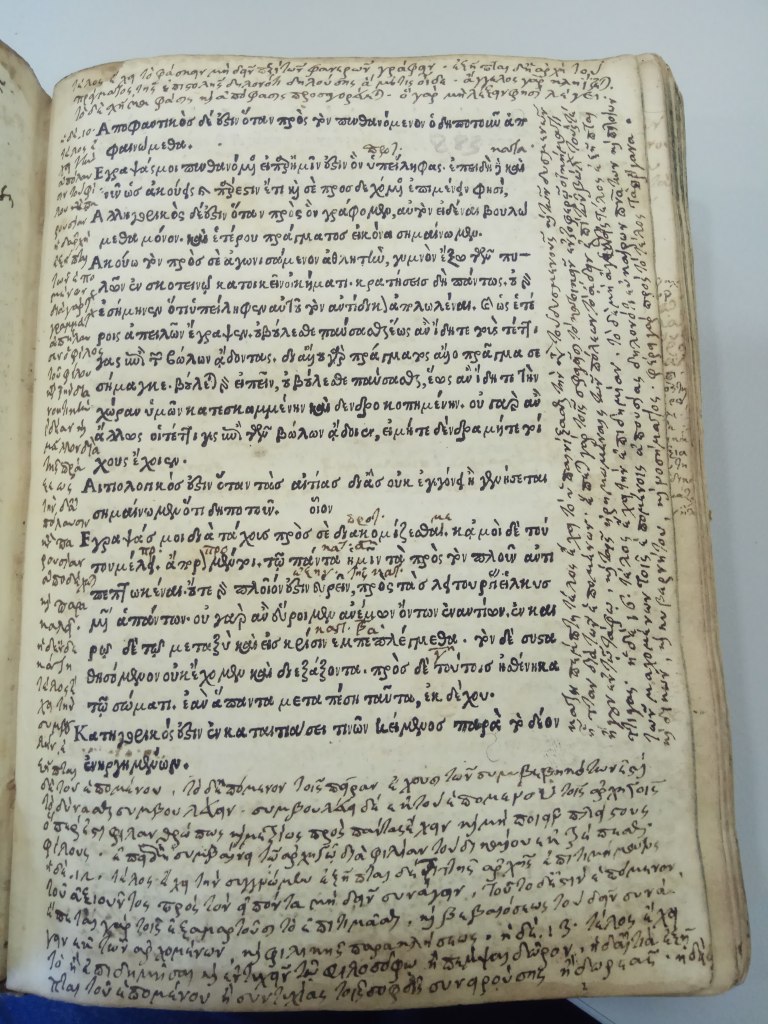


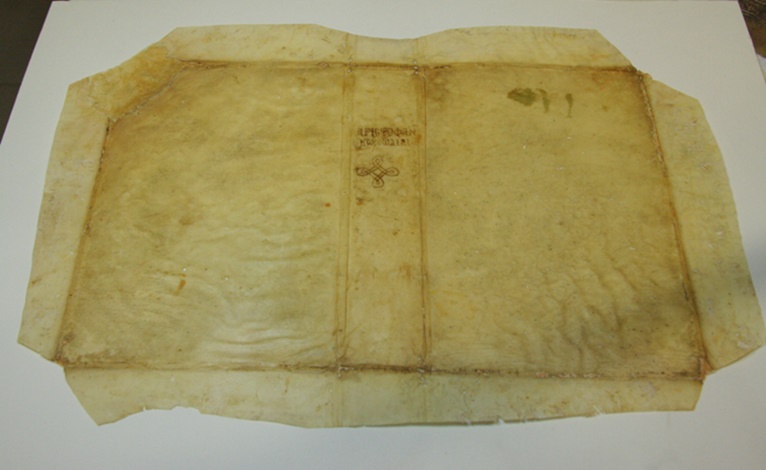
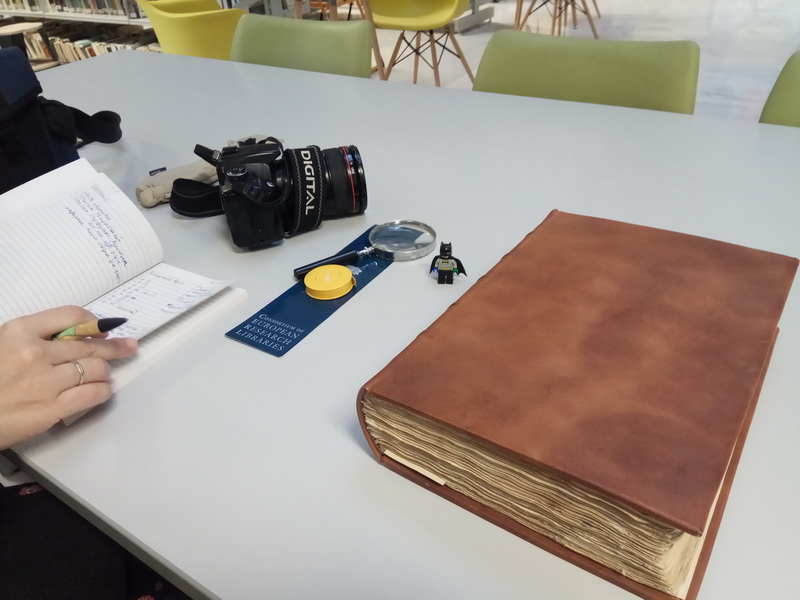



 info@laskaridisfoundation.org
info@laskaridisfoundation.org +30 216 900 3700
+30 216 900 3700  www.laskaridisfoundation.org
www.laskaridisfoundation.org


